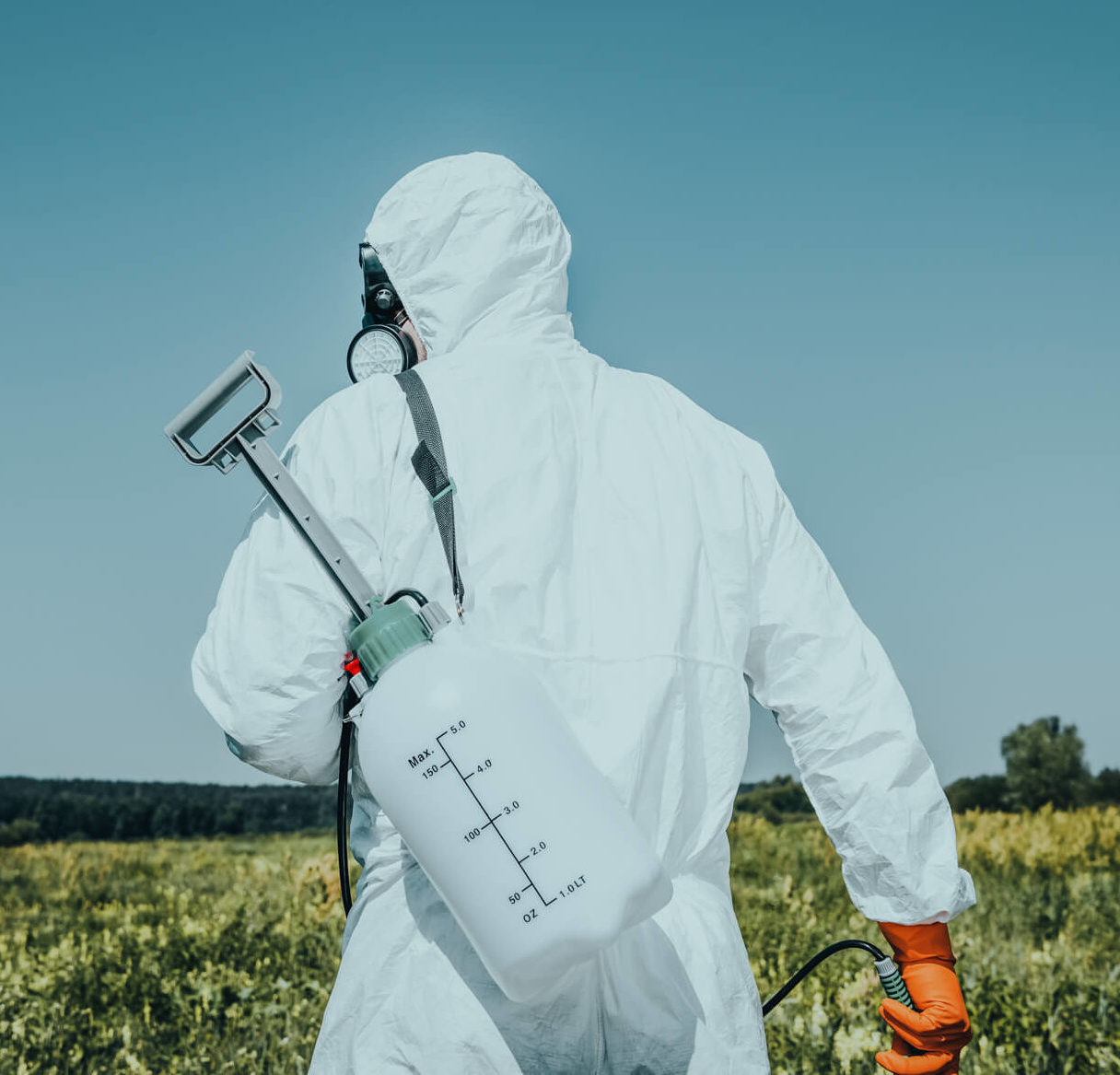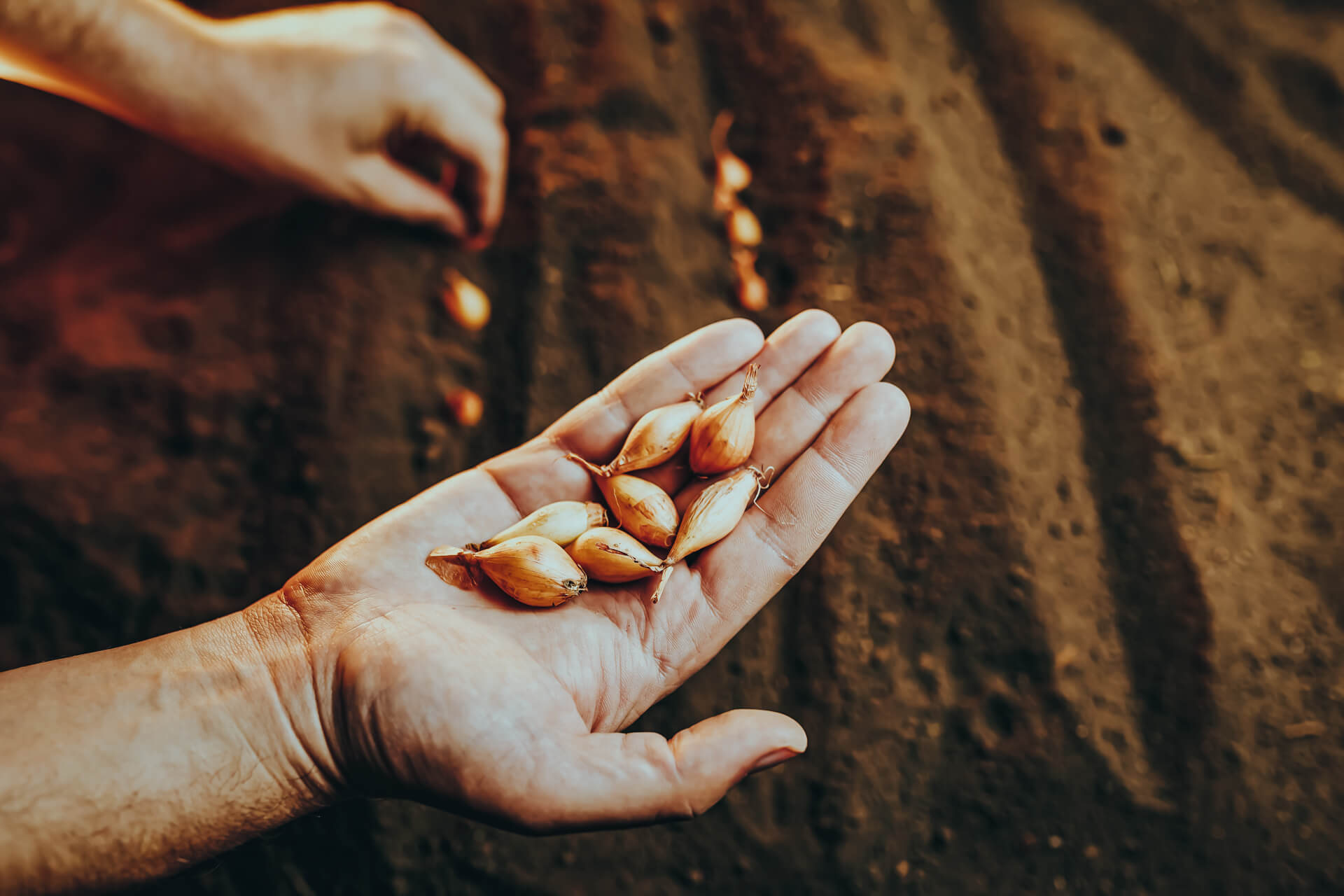Understanding summer nectar dearth: impact on bees
- Our Sustainable Farm (OSF)
As we peruse down the aisles of our local grocery store and browse among its fresh produce bins, we are inundated with tasty food options. Bright colors, stylish brand labels, health claims, and catchy slogans entice us to buy. Yet, most of this expertly designed packaging tells us very little about the quality of the food we are considering.
Food corporations’ study human psychology and try to present food in such a way that it becomes appealing to us as shoppers. We see claims like “all-natural”, “pure”, and “healthy”, but these terms don’t require any special certification or quality control measures, and therefore have no significant meaning.
So, how do we choose what’s best for our family if most labels are simply marketing ploys? Well, it turns out that there are two food labels that do matter, and they have a very significant meaning. Parameters of the organic label, and to a lesser degree, the non-GMO label, are vitally important for consumers to understand. Today let’s dive deep into this topic and find out what these food packaging labels mean for our health.


Organic Versus Non-GMO
Isn’t all food organic? Well, not exactly. Sure, all food should be comprised of organic matter, but the terms “organic” and “non-GMO” refer to a food’s quality status. Foods labeled as organic or non-GMO are held to a higher standard and are largely shielded from increasingly shady manufacturing practices.

What Does the Non-GMO Food Label Entail?
The non-GMO food label means that produce and fresh animal products have been manufactured without the use of genetically modified organisms. This includes processed foods like boxed, bagged, and canned items as well.
Now non-GMO foods can still contain pesticide, herbicide, or antibiotic residues, but they are still superior to GM food because they have not been altered at the genetic level. To learn more about non-GMO food you can visit the Non-GMO Project website.



What is “Organic Food”?
Food that carries the USDA-certified organic label has been grown, raised, and processed in a special way that guarantees its superior quality. Additionally, certified organic food is automatically non-GMO.
Organic agriculture goes a few steps further than being simply non-GMO. Organic food production has strict laws and regulations, though movers and shakers in the food industry work tirelessly to circumvent these standards.
Presently, organic agricultural standards require produce, fresh animal products, and processed foods to be produced without the contaminants commonly found in conventionally manufactured foods.
In plants, the use of chemical pesticides, toxic herbicides, and synthetic fertilizers are banned. In animal products, antibiotics and artificial growth hormones are forbidden. Furthermore, all organic food is free of toxic preservatives, manmade chemicals, stabilizers, fillers, artificial flavors, synthetic colorants, and it forgoes the irradiation process. Most importantly, organic foods have been shown to have higher nutritive value.

GM Crops and Corporate Greed
The main argument for genetically modified crops is that they help mitigate the challenges of climate change and offset regional growing challenges for the purpose of reliably feeding the growing masses. On the surface, GMOs sound like a noble and compassionate endeavor.
The truth however is that GMO crops line the pockets of corporate investors while also edging out competition from smaller and local farms. As a result, GMO companies are increasingly able to monopolize the food industry. The long-term ramifications of this are that we as consumers will have fewer options at the grocery store.
Furthermore, there really isn’t a need for GMO technologies because we have seen far better agricultural outcomes by utilizing the natural principles of permaculture, which work with nature instead of against it. The GMO industry fundamentally has the perspective that nature must be conquered, rather than respected.


The Impact of GMOs
Genetically Modified Organisms are manmade and do not occur naturally. Therefore, when we consume them, we are eating lab-designed “Frankenfood”; a term aptly named after Frankenstein’s monster.

Harm to Livestock
Farmers in India have expressed concerns about using GM crops for their livestock animals. This is because they have witnessed their animals fall ill after consuming GM crops. An important thing to consider is that if livestock are getting sick, what are these crops doing to us as humans?
Another consideration is that corporate farming is often abusive to livestock animals and diminishes their quality of life. Organic farming, on the other hand, is a more benevolent and sustainable model for animal husbandry. The documentary, ‘Food, Inc.’ is a great film to watch about this subject.


The Human Cost
Ever wonder why farm workers have to wear full-body protective suits when spraying a food crop? Turns out, the chemicals they spray on conventional crops are toxic to human health.
It’s important to consider though, that crops that are sprayed with herbicides and pesticides can be washed. GM crops, however, have herbicides and pesticides written directly into the DNA of the organism. Toxins like glyphosate cannot be washed off and exist at far higher levels inside the plant.
In fact, the whole premise of glyphosate-infused GMOs is that when insects eat the crop they die. If insects are being poisoned, it stands to reason that such crops may harm us as well, over time. Could it be that corporate greed is slowly killing us? I’ll let you be the judge.

Can We Trust Science?
The scientific community is not entirely in agreement on the topic of GM crops. It’s easy to deduce or correlate this lack of continuity to two factors. One, many GMO studies are often financed by the very companies that want to employ their use, which is a direct conflict of interest. Smaller and independent studies are often dismissed due to claims of inadequate parameters or size.
When GMOs first came out, there were numerous studies sounding the alarm. Dialogue about this topic was more balanced…we were able to hear what both sides had to say. Yet, the research community has grown eerily quiet over the last few years, as food companies have grown larger and more powerful. On top of this, clinical literature can be hard to find or expensive to read. For this reason, the average consumer is kept in the dark.


These early studies reported concerns over allergic reactions, hormone disruption, immune disorders, bowel disease, reproductive harm, infertility, cognitive problems, birth defects, tumors, cancer, and other health conditions too numerous to list here.
Additionally, over the last few decades, we have seen an uptick in auto-immune diseases, skyrocketing cancer, allergies, crones’ disease, diverticulitis, leaky gut, and numerous other stomach-related illnesses here in the West.
We have to ask ourselves why we’ve been suffering from these maladies, especially when our ancestors didn’t seem to. If we think critically about this issue and ask the right questions, we’ll discover that highly processed GM food is not the best option for long-term health.
Interestingly enough, we don’t see the same types of disease in regions where large corporate farming is restricted or absent. In the world’s blue zones specifically, residents are consistently living into their 100s and there is a stark absence of Western disease. In these regions, residents have access to fresh and organic food. Sure, this hypothesis needs further scientific study, but it’s compelling non the less. At the very least, blue zones should inspire more research into the benefits of organic food.
How Fresh, Homegrown Food is Superior
As food corporations grow larger and even more powerful, homegrown is fast becoming the ideal source of food. With such food, we can rest assured that our crops are growing in quality soil, and we have the satisfaction of knowing exactly what has gone into its manufacture. On top of all this, we have the benefit of eating the freshest, most nutrient-dense food available.



GM Seeds Versus Garden Bred Seeds
Agriculturally, we as humans have been breeding seeds and animals for hundreds, if not thousands of years. The difference between GM seeds and traditional seeds is stark. The DNA of GM seeds is manipulated in a lab. Synthetic chemicals and foreign DNA from other organisms can be spliced in. GM seeds are what large corporate food growers use to mass produce GMO foods.
Heirloom Seeds
Heirloom, native, and organic seed varieties refer to seeds that are non-GMO. Such seeds have been developed over many generations, are time-tested, and are naturally adapted to local growing conditions.
Guard and treasure your heirloom seeds like their tiny nuggets of gold…because they are. Pass them on to the next generation and encourage their widespread use. Organic and Non-GMO seed banks are increasingly under attack by greedy corporate interests. Over the coming decades, heirloom seeds may become rare as traditional seed banks are bought out by GMO seed companies.



The Importance of Real Food
It’s now more important than ever to grow your own food and support local organic farmers. Sure, it can be tempting to buy the most affordable food products from grocery store shelves, but as the old saying goes: “we get what we pay for”. Now if organic food seems to be too pricy, at the very least, seek to buy non-GMO food products. In doing so, you’ll be supporting sustainable farmers.
There is no substitute for real food. Ever watch the documentary movie called, “Super-Size Me”? The interesting thing about this documentary, though anecdotal, is that it showed what can happen to the human body when it is purely dependent upon a highly processed, corporate GM diet.
Scientifically, it makes sense that we as human beings should probably be eating food to which we are evolutionarily adapted. One thing is for sure, we are not adapted to eating highly processed, chemical-laden, Frankenfood from a factory.
Closing Thoughts
Thanks so much for joining us on this controversial topic. Sometimes it can be hard to get to the bottom of the truth. Yet if we’re patient and we’re willing to do a little digging, we can work out the truth of a matter for ourselves.
There is a saying, we can either pay a little extra to the grocer for quality food, or we can pay the doctor later. As for me, I’d rather pay my grocer or my local farmer for their organic produce and animal offerings.



Summary
Organic and non-GMO agriculture are important for sustainable agriculture and back yard gardening. The organic label, and to a lesser degree, the non-GMO label, are important for consumers to understand. The organic label refers to a food’s quality status, while the non-GMO label means that produce and fresh animal products have been manufactured without the use of genetically modified organisms. Organic food is grown, raised, and processed in a special way that guarantees its superior quality. Organic agriculture goes a few steps further than simply non-GMO, though movers and shakers in the food industry work tirelessly to circumvent these standards.
Organic agricultural standards require produce, fresh animal products, and processed foods to be produced without contaminants commonly found in conventionally manufactured foods. However, genetically modified organisms (GMOs) are manmade and do not occur naturally, making them a “Frankenfood” for humans. Farmers in India have expressed concerns about using GM crops for their livestock animals, as they have witnessed their animals fall ill after consuming them. Organic farming is a more benevolent and sustainable model for animal husbandry, while corporate farming is often abusive to livestock animals and diminishes their quality of life. The most important details in this text are that conventional crops are toxic to human health, and that GM crops have herbicides and pesticides written directly into the DNA of the organism.
Toxins like glyphosate cannot be washed off and exist at far higher levels inside the plant. The scientific community is not entirely in agreement on the topic of GM crops, and clinical literature can be hard to find or expensive to read. Early studies reported concerns over allergic reactions, hormone disruption, immune disorders, bowel disease, reproductive harm, infertility, cognitive problems, birth defects, tumors, cancer, and other health conditions. Over the last few decades, we have seen an uptick in auto-immune diseases, skyrocketing cancer, allergies, crones’ disease, diverticulitis, leaky gut, and numerous other stomach-related illnesses. If we think critically about this issue and ask the right questions, we will discover that highly processed GM food is not the best option for long-term health.
Blue zones in the world have access to fresh and organic food, which is superior to GM seeds. Heirloom seeds are non-GMO, have been developed over many generations, are time-tested, and are naturally adapted to local growing conditions. Blue zones should inspire more research into the benefits of organic food. GM seeds are manipulated in a lab, while heirloom seeds have been developed over many generations and are time-tested. Organic and Non-GMO seed banks are under attack by greedy corporate interests, making it more important than ever to grow your own food and support local organic farmers.
The documentary movie “Super-Size Me” showed what can happen to the human body when it is relying on a highly processed, chemical-laden diet from a factory. Closing thoughts: It is important to pay extra for quality food and to do a little digging to find out the truth.

REFERENCES
Non GMO Project
What is a GMO
Organic Trade Association
GMO Health Concerns (Allergic Response)
GMO Health Concerns (livestock in India)
Organic Foods Shown to Be Superior
Irradiation
Frankenfood
Documentary (Food, Inc.)
Food Labeling
GMO Health and a Lack of Scientific Consensus
Center For Food Safety
Enveurope
5 little known health benefits
Organic Produce Network
Blue Zone Diet
GMO Health Concerns: Controversial study about the toxic effects of glyphosate (GMO corn)
Republished Version
Debate Update
Answering article
Evaluation of adverse effects/events of genetically modified food consumption: a systematic review of animal and human studies
Biodiversity Impact: “Transgenic pollen harms monarch larvae“
Harm to Pets
Gathered Information from Other Researchers
GMO Risks
Toxin from GM crops found in human blood







